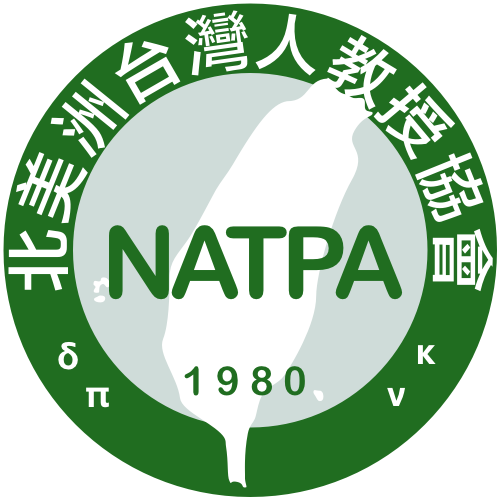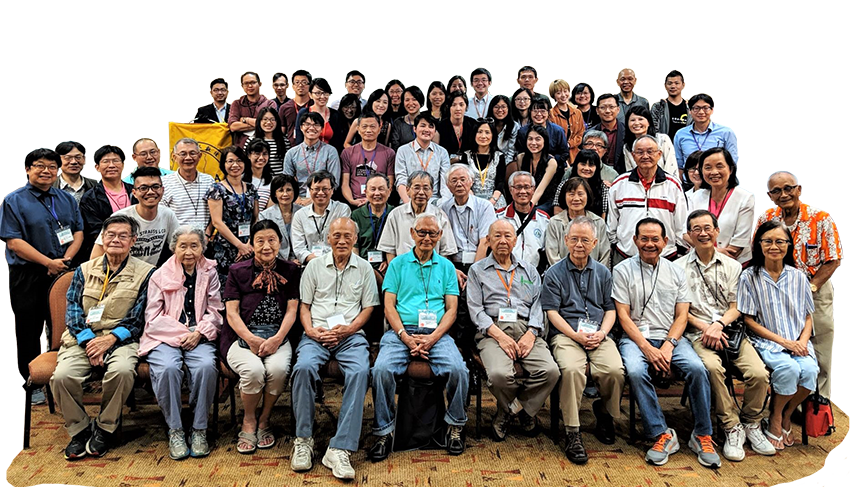
ABOUT US

「北美洲台灣人教授協會」,英文名稱「North America Taiwanese Professors’ Association」,簡稱「NATPA」,創立目標是關懷台灣的民主與福祉、為台灣發聲。「NATPA」於1980年正式成立,這是海外台灣人最早成立的組織之一。NATPA的成立可以追溯到1975年10月,幾個任教於中西部的台灣人教授在創會會長廖述宗教授的家中聚會,討論台灣政局、社會狀況、中美建交和台灣前途等問題。大家談到應組成一個結合在北美洲台灣人學者及專業人員的組織,相互交流,群策群力,互相提攜,並共同為謀求台灣成為民主繁榮的新國家而努力。這個共識,在接下來幾年,一直盤旋在大家的腦海中。
1979年12月10日,高雄發生「美麗島事件」。當時黨外人士在高雄舉辦「國際人權日」紀念遊行,卻被國民黨的便衣特務混入製造暴亂。12月13日,警備總部以「涉嫌叛亂」逮捕高雄「美麗島事件」多名關係人員。美麗島事件發生後,任職於六十多處大學和著名硏究機構的一百三十七名台灣人教授與資深學者,聯名在華盛頓郵報發表聲明,強烈抗議國民黨政府藉口美麗島事件大舉逮補黨外民主、人權運動、民代和教會人士。此事,加速大家團結北美洲台灣人教授學者的渴望,因此12月底,眾多任職於美加地區的台灣人教授與學者,一致提議成立「北美洲台灣人教授協會」。
1980年4月24日教授協會正式成立,定名為「北美洲台灣人教授協會(簡稱NATPA)」,並向伊利諾州註冊為非營利性財團法人。1983年6月7日,NATPA被美國聯邦政府國稅局認證為非營利性免稅機構。
1980年8月9日,NATPA在芝加哥大學「Ben May 癌症硏究中心」會議室舉行成立大會,共有來自北美各地區四十多位會員參加。會中正式通過會章和章程,明定教授協會的宗旨有四:(1)提升科學專業知識及其實用;(2)促進國際間台灣教育和文化交流;(3)支助與台灣有關議題之研究;(4)推廣並維護台灣人的公義和福利;工作目標有三:(1)組織的健全和擴展,包徵求會員、設立分會、調查台灣人技術專才、人力的資源:(2)與其它社團、政府機構的聯繫,包括與在美台灣人團體、美國和其它外國公私機構、社會、文化、教育團體的聯絡和合作;(3)回饋鄕土,包括促進台灣民主化、維護社會公義和人權,並協助或提供建立繁榮的台灣所需的專業知識和技術。這些決議確立了教授協會的工作宗旨和努力方向。
The North American Taiwanese Professors’ Association (NATPA) was established with the goal of caring for Taiwan’s democracy and welfare, and to speak out for Taiwan. NATPA was formally established in 1980, and it was among the earliest organizations that were established by overseas Taiwanese people. NATPA’s establishment can be traced to 1975. One October night that year, a number of Taiwanese professors teaching in the Midwest gathered at funding President Prof. Liao's home. Various issues were discussed like Taiwan’s political and social conditions, the establishment of diplomatic relations between China and the United States, and the future of Taiwan. We arrived at the topic of needing to form an organization that could bring together Taiwanese scholars and specialists from around North America to strengthen interchanges, teamwork, mutual support, and cooperation between us, in order to work hard to make Taiwan into a democratic and prosperous new country. In the following years, this consensus continued to linger in people’s minds.
On December 10th, 1979, the Formosa Incident occurred in Kaohsiung. Tangwai (“outside the party”) figures held an International Human Rights memorial parade, but there were undercover agents that the Kuomintang sent to infiltrate the demonstrators and start riots. On December 13th, the Garrison Command arrested many people involved in the Formosa Incident on suspicion of “rebellion.”
On April 24th, the association was officially established and named the North America Taiwanese Professors’ Association (NATPA), and it was registered as a non-profit corporation with the state of Illinois. On June 7th, 1983, the U.S. federal government’s Internal Revenue Service certified NATPA as a non-profit, tax-exempt organization.
On August 9th, 1980, NAPTA held its inaugural meeting in a conference room in the University of Chicago Ben May Department for Cancer Research. Over forty members from around North America attended the meeting. During the meeting, the charter and bylaws were formally adopted. We cleared outlined the association’s four missions: (1) enhance scientific expertise and knowledge and their practical usage; (2) promote international educational and cultural exchanges with Taiwan; (3) support research on Taiwan-related issues; (4) promote and maintain justice and welfare for the Taiwanese people. Three work goals were also established: (1) strengthening and expanding the organization, which includes recruiting members, creating local chapters, and finding Taiwanese people with technical expertise and other human resources; (2) contacting other organizations and governmental agencies, which includes cooperating with and contacting other Taiwanese American organizations, and both public and private, social, cultural, and educational organizations in the U.S. and abroad; (3) giving back to our homeland, which includes promoting the democratization of Taiwan, protecting social justice and human rights, and assisting with or providing the expertise and skills needed to establish a prosperous Taiwan. These decisions determined the goals and direction for NATPA.